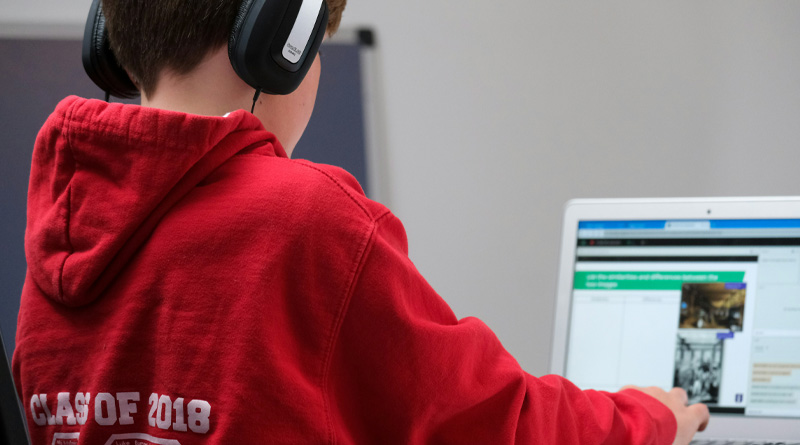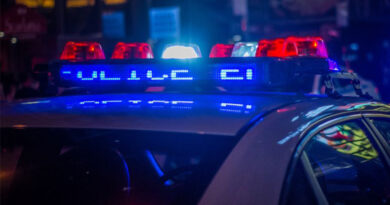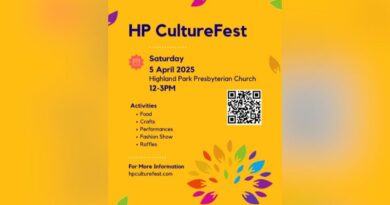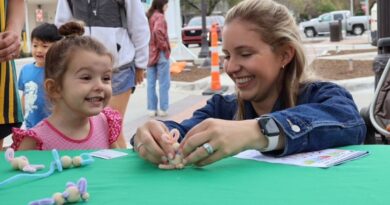HPHS Student’s Essay Warns About Dangers of Disinformation
By: Olivia-Sophie Keijsers Koning
The world is ending. The No. 7 does not exist. Rain is a myth.
If I gave dates and images and “sources” that support these statements, would they be believable? If I gave these statements with full confidence, would you change your thinking, change what you have always known, seen, and felt, based on a published article?
Unsuspecting victims of disinformation can often fall into the trap of blind belief of what they read or see or hear due to the prior credibility so-called reliable sources have enjoyed. Today, with the reach of the internet, there has been an explosion of “sources,” many with intentions of manipulating their readers’ thoughts and opinions. Without tools to help, people will fall into the trap of believing it’s true simply because it appears in writing or in a photo or video.
Most of us are unaware of the amount of disinformation we absorb on a regular basis. This endless uncritical consumption of false information causes inner turmoil, and can create major misunderstandings in the community. How can two people have a successful or comprehensible conversation if one viewpoint is based on lies? Or, even worse, both are blind to the truth?
Gen Z, my generation, has been raised in a world surrounded by media, and with it, disinformation. It has gotten to the point where the volume of lies we ingest forces us to question the point of trying to stay informed? How can we decipher the truth if it’s only used as a Trojan Horse to spread lies?
This is the new dangerous world we live in. The ability of organizations and individuals to spread misinformation to build a base of seemingly clueless followers is an enormous power, and one that is increasingly abused. My generation shoulders the burden of living in a world where truth seems to have lost its value. We need to think for ourselves by always seeking out accurate information, beyond that from parents, from friends and the media.
Disinformation is a weapon, one that has the potential to destroy and enforce pure chaos. In the recent political season, power was consolidated with repeated disinformation that got picked up and circulated to an ever-widening network of amateur and professional sources. The bold-faced lies that allowed power hungry individuals throughout history to gain control of people and property were utilized in the 2024 presidential election, where it was often more common to find lies than truths.
The only way we can avoid being susceptible to these fallacies is to be aware of the differences between facts and lies, statistics and deceits. We all need to develop effective ways to identify the legitimacy of a story by double and triple checking sources from across the spectrum of ideologies, as well as cross-referencing the presented information with multiple trusted sites. Tools are getting better. As one example, to verify an image or a graph we need only to insert it into google or a fact checking site to identify the origin of the image or data.
Schools also need to teach how to identify a credible source, and ways to determine the truth. In Finland, schools teach kids about dis and misinformation starting in elementary. This develops a keen eye to spot the lies and to steer clear from such tales. This also creates an awareness in children about society and the importance of finding the truth.
To prevent an ignorant society, people need to read about and understand the surrounding world in all its complexity. It is impossible to differentiate the truth if people aren’t aware of the lies that surround them. To be savvier, to ask the right questions, and to be well educated, we need to be aware of the details of our current events.
In our country people have the right to their opinions but shouldn’t spread changed or manipulated evidence. If people do not raise awareness now, history will repeat.
This essay by Olivia-Sophie Keijsers Koning, a junior at Highland Park High School, is tied for first in the Moody Advanced Professional Studies Modern Media course’s Op-Ed competition. The other winner’s essay was submitted to a different publication.









